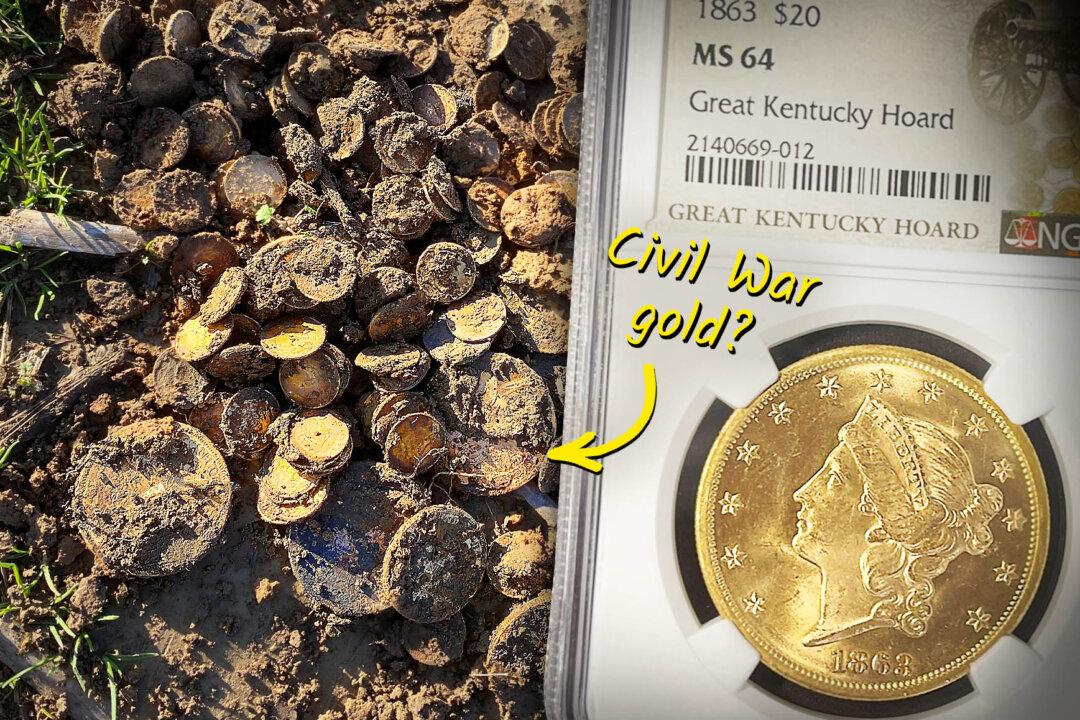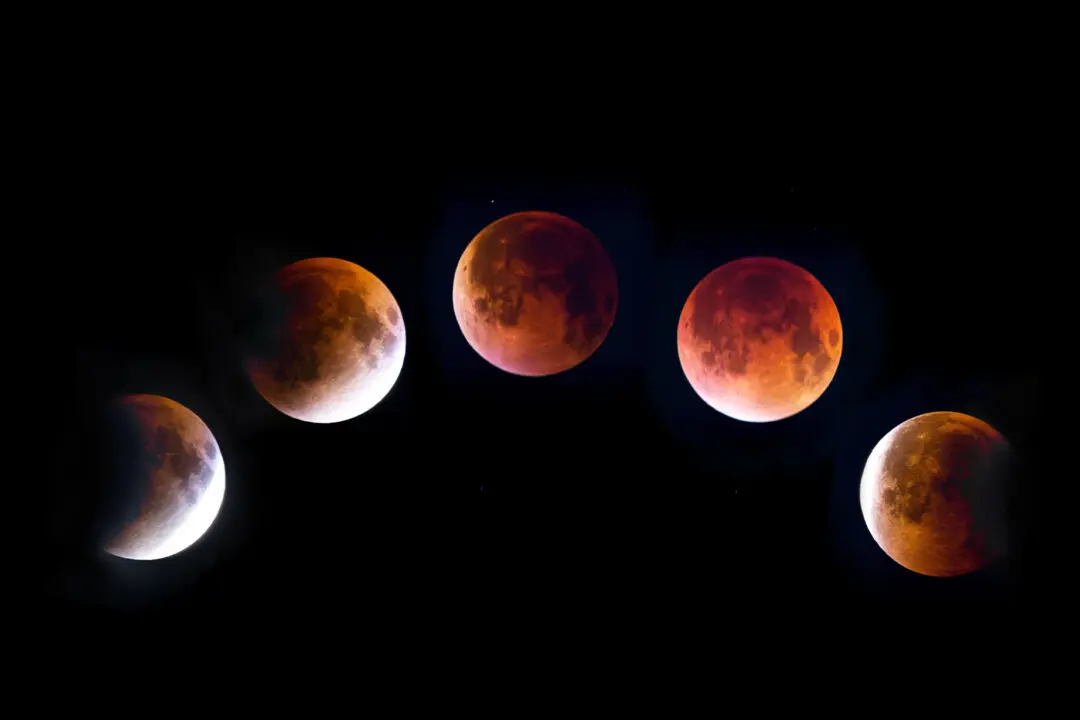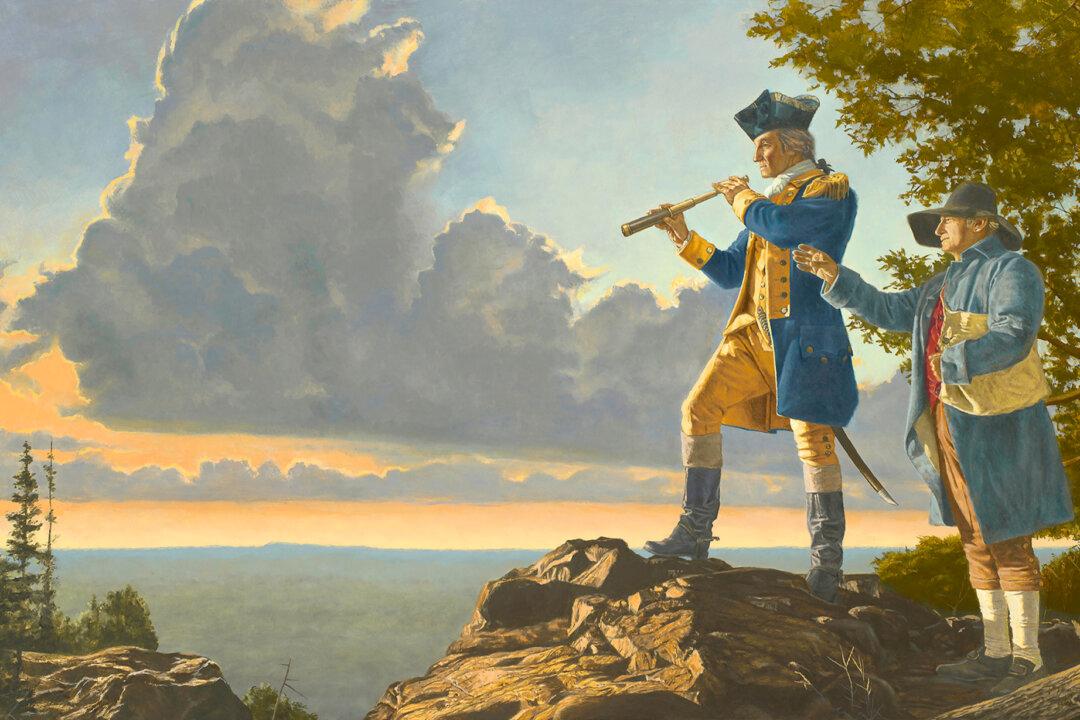Whoever bundled and buried the huge hoard of gold coins in a canvas bag in the dirt never returned.
“Probably they were killed, that’s my guess,” Kentucky rare coin expert Jeff Garrett, 66, told The Epoch Times, speaking of whoever owned what is now the “Great Kentucky Hoard.”






